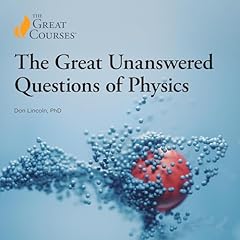
Understanding Complexity
No se pudo agregar al carrito
Add to Cart failed.
Error al Agregar a Lista de Deseos.
Error al eliminar de la lista de deseos.
Error al añadir a tu biblioteca
Error al seguir el podcast
Error al dejar de seguir el podcast
 Exclusivo para miembros Prime: ¿Nuevo en Audible? Obtén 2 audiolibros gratis con tu prueba.
Exclusivo para miembros Prime: ¿Nuevo en Audible? Obtén 2 audiolibros gratis con tu prueba.Compra ahora por $17.33
-
Narrado por:
-
Scott E. Page
Recent years have seen the introduction of concepts from the new and exciting field of complexity science that have captivated the attention of economists, sociologists, engineers, businesspeople, and many others. These include tipping points, the wisdom of crowds, six degrees of separation (or Kevin Bacon), and emergence.
Interest in these intriguing concepts is widespread because of the utility of this field. Complexity science can shed light on why businesses or economies succeed and fail, how epidemics spread and can be stopped, and what causes ecological systems to rebalance themselves after a disaster.
In fact, complexity science is a discipline that may well hold the key to unlocking the secrets of some of the most important forces on Earth. But it's also a science that remains largely unknown, even among well-educated people.
Now you can discover and grasp the fundamentals and applications of this amazing field with Understanding Complexity. Professor Scott E. Page of the University of Michigan - one of the field's most highly regarded teachers, researchers, and real-world practitioners - introduces you to this vibrant and still evolving discipline. In 12 lucid lectures, you learn how complexity science helps us understand the nature and behavior of systems formed of financial markets, corporations, native cultures, governments, and more.
PLEASE NOTE: When you purchase this title, the accompanying PDF will be available in your Audible Library along with the audio.
©2009 The Great Courses (P)2009 The Teaching Company, LLCLos oyentes también disfrutaron:




















Las personas que vieron esto también vieron:


















Great Overview Of A Complex Subject
Se ha producido un error. Vuelve a intentarlo dentro de unos minutos.
great but fast
Se ha producido un error. Vuelve a intentarlo dentro de unos minutos.
Try slowing the speed to understand his speech
Se ha producido un error. Vuelve a intentarlo dentro de unos minutos.
highly recommended
Se ha producido un error. Vuelve a intentarlo dentro de unos minutos.
Wish I heard and absorbed it earlier in my career!
Se ha producido un error. Vuelve a intentarlo dentro de unos minutos.



